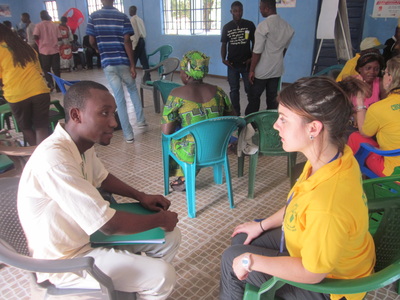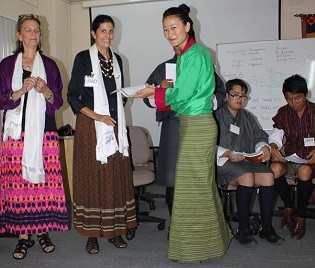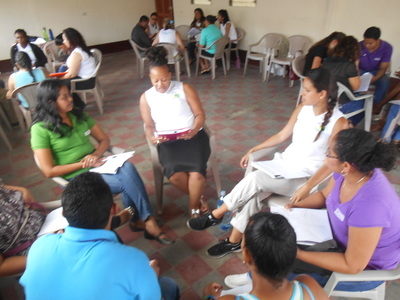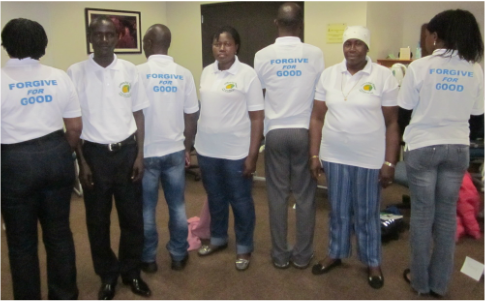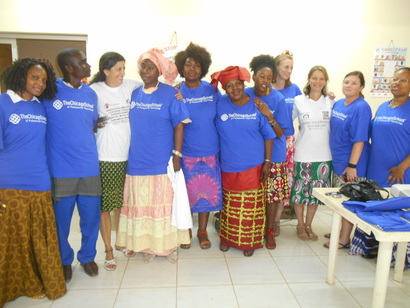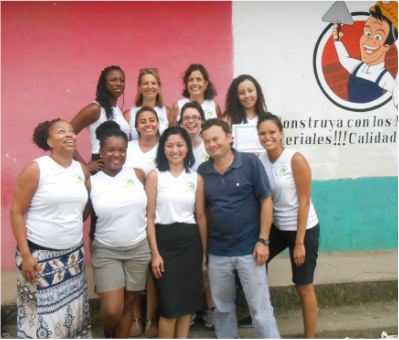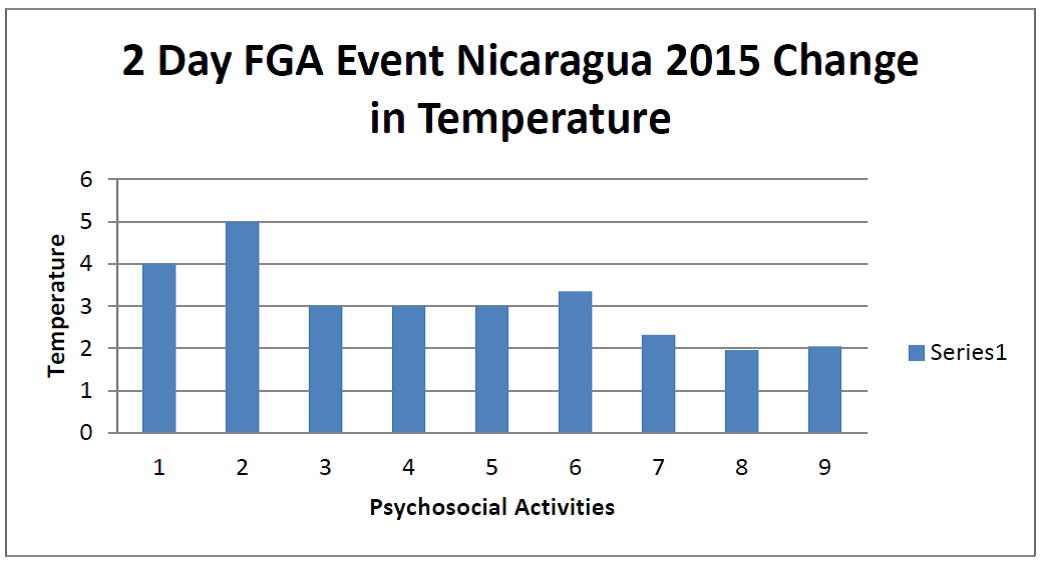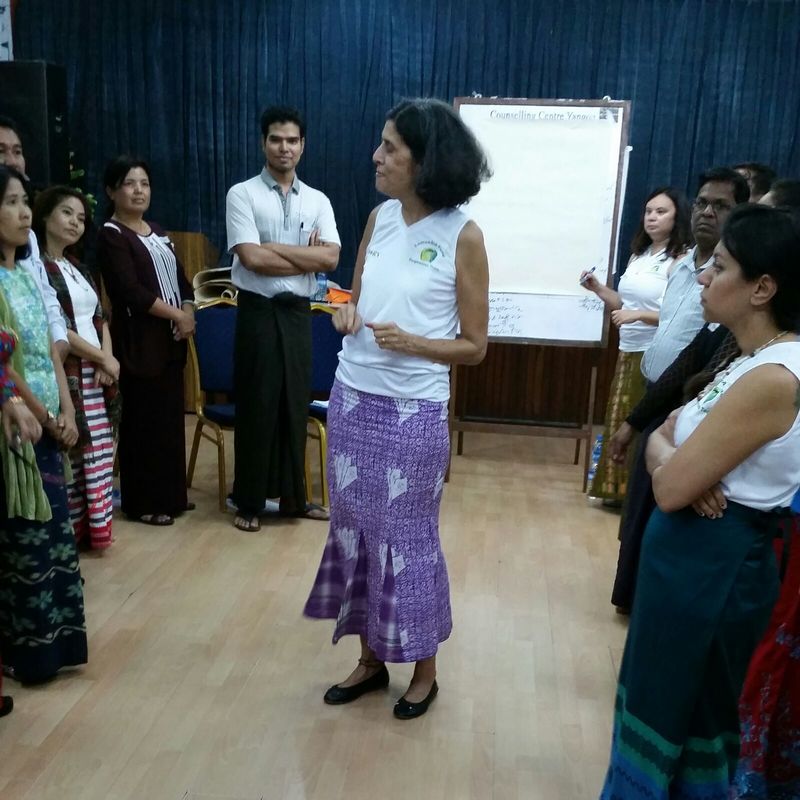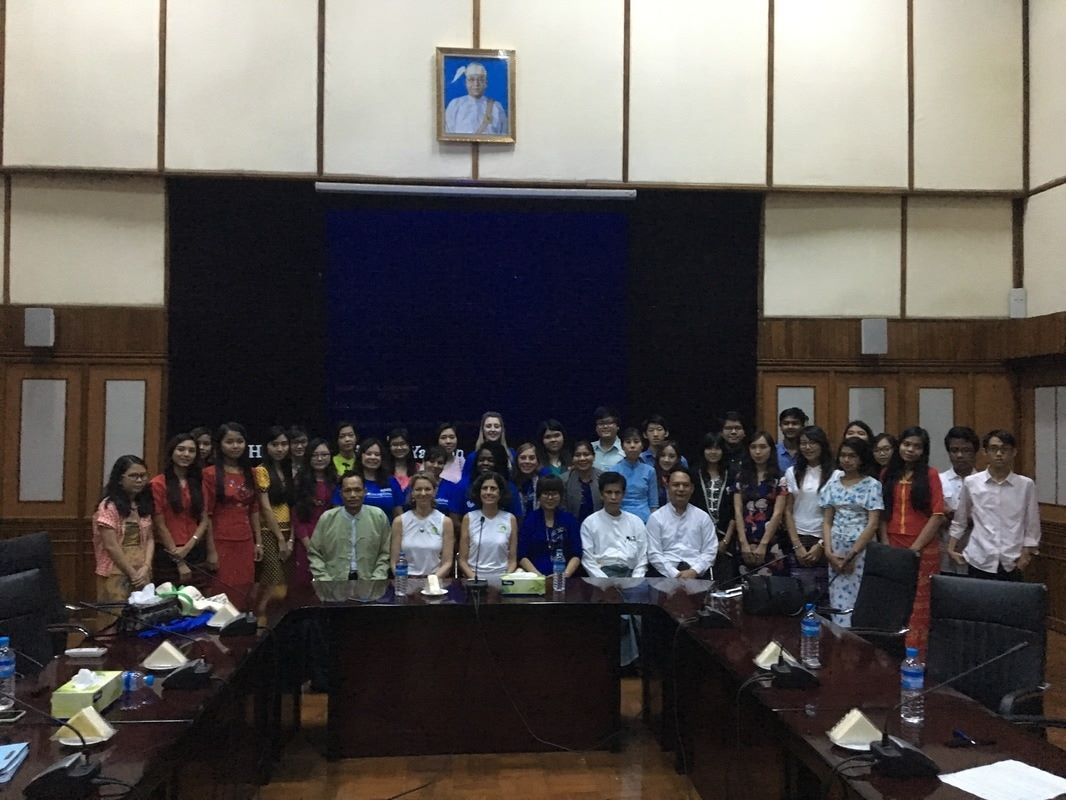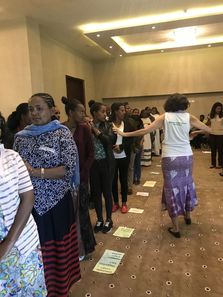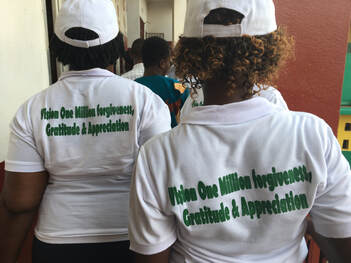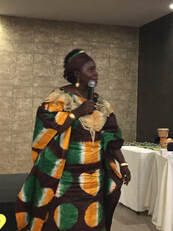Global Resiliency and Psychosocial Well-Being Approach: Forgiveness, Gratitude and Appreciation (FGA)
Our Vision 1,000,000 People Receive the Benefits of FGA
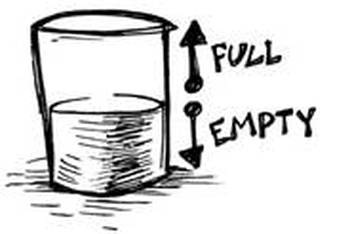
What is Resiliency and Well-Being and Why are they such Important Investments?
Resiliency is the characteristic that the individual, group or community shows in functioning competently despite exposure to the damaging effects of adverse or threatening circumstances. It's the ability to bounce back maybe even stronger or overcome challenges from betrayals and hurts to a trauma or a crisis.
Well-being has more to do with an overall life satisfaction including resiliency, positive feelings and emotions. CDC says, "well-being is associated with numerous health-, job-, family- and economically-related benefits. For example, higher levels of well-being are associated with decreased risk of disease, illness, injury; better immune functioning; speedier recover; and increased longevity. Individuals with high levels of well-being are more productive at work and are more likely to contribute to their communities."
Well-being is about a person's perception of how their life is going and how they may perceive their feelings from hopelessness and depression to joy and love. A perspective of half full can bring more happiness, health, wealth and psychosocial well-being. FGA helps people with choosing to see the glass half full and expecting positive aspects in life that will lead to taking inspired action that produce wanted results: health, economics, social, and relational.
A 3-Step Recipe for Resilience, Happiness and Psychosocial Well-being FGA:
1. Focus on Forgiveness (Let GO)
2. Give Gratitude
3. Allow Appreciation and Practice Positive Aspects
Resiliency is the characteristic that the individual, group or community shows in functioning competently despite exposure to the damaging effects of adverse or threatening circumstances. It's the ability to bounce back maybe even stronger or overcome challenges from betrayals and hurts to a trauma or a crisis.
Well-being has more to do with an overall life satisfaction including resiliency, positive feelings and emotions. CDC says, "well-being is associated with numerous health-, job-, family- and economically-related benefits. For example, higher levels of well-being are associated with decreased risk of disease, illness, injury; better immune functioning; speedier recover; and increased longevity. Individuals with high levels of well-being are more productive at work and are more likely to contribute to their communities."
Well-being is about a person's perception of how their life is going and how they may perceive their feelings from hopelessness and depression to joy and love. A perspective of half full can bring more happiness, health, wealth and psychosocial well-being. FGA helps people with choosing to see the glass half full and expecting positive aspects in life that will lead to taking inspired action that produce wanted results: health, economics, social, and relational.
A 3-Step Recipe for Resilience, Happiness and Psychosocial Well-being FGA:
1. Focus on Forgiveness (Let GO)
2. Give Gratitude
3. Allow Appreciation and Practice Positive Aspects
LemonAid Fund's Global Psychosocial Forgiveness, Gratitude and Appreciation (FGA) Approach
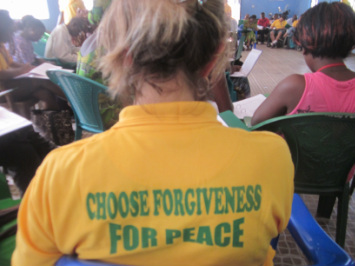
In 2001, Dr. Peddle completed her dissertation on the role of forgiveness in trauma healing and recovery/resiliency among refugees of war. She found a strong correlation between those who were forgiving and those who were resilient/recovered. What has followed is LemonAid Fund's global journey to support resiliency, recovery and relief while increasing psychosocial well-being from the stress and trauma of big and small betrayals, hurts and violence using forgiveness, gratitude and appreciation (FGA). It's a process and an investment in creating peace and a positive future.
In 2002, Sierra Leone declared the end of it's 10 year war and the President, Ahmad Tejan Kabbah, pleaded with the nation to forgive one another. In 2004, Bishop Joseph Christian Humper, Chair of the Sierra Leone Truth and Reconciliation Commission (TRC) stated, “Learning to forgive those who have wronged us is the first step we can take towards healing our traumatized nation." LemonAid Fund used tools that had been researched which increased well-being and then used them globally with further documented success. Then Dr. Nancy taught individuals, first in Sierra Leone and then across the globe, how to forgive beginning the healing and resiliency through forgiveness.
In 2007, LemonAid Fund worked with professors and students from Stanford University and Luther College to facilitate an initiative on forgiveness entitled "Peace through Forgiveness" funded by the Projects for Peace. With the assistance of the LemonAid Fund, Dr. Toussaint and his two students from Luther College engaged in a week long data collection and forgiveness skills training for LemonAid Fund's Network of teachers and students in Sierra Leone. The training drew from the work of Dr. Fred Luskin, the director of the Stanford Forgiveness Project. This project began our gathering and documenting scientific evidence that these efforts can be effective agents of change in stimulating hope, well-being, and peace at the individual level.
In 2011, Luskin, Toussaint and Peddle brought seven individuals from Sierra Leone to Stanford University for a week of forgiveness training. This was beyond some of the Sierra Leonean's wildest dreams. They learned forgiveness techniques and scientific research that supports the practice of forgiveness as well as enjoyed San Francisco. The energized group returned to Sierra Leone to train more trainers and individuals, collect research data and prepare culturally appropriate materials to reach our goal of helping over 10,000 people become their best selves.
In 2014, the Forgiveness Team joined with The Chicago School of Professional Psychology, Yoga Strength Sierra Leone, Social Workers Sierra Leone and Mission4Salone to bring psychosocial well-being to a group of 1,000 children in Sierra Leone . The results were electric: 60 adults received training in our FGA techniques that helped heal their own abuses/stress/violence and then they immediately put their new knowledge into action with 1,000 children. We collected data on the training and activities. The stories collected first brought tears of sorrow (i.e. abuse, neglect, and violence) which were transformed to tears of joy as we progressed through the FGA activities.
The FGA workshop evaluative research shows that we are achieving results as evidenced by the data:
- 100% of participants experience a decrease in stress and an increase in well-being by the end of the workshop they attend. This reduction of stress can lead to an increase in mental and physical health (more energy, longevity, an immune boost, more focus, more patience etc.)
- 95% of participants express a shift in their trauma stories that will help them with releasing trauma related symptoms they may have.
- 80% of participants forgive themselves and the person who has hurt them. This forgiveness measure is a proxy for increased mental and physical health.
- 100% of participants learn hands on activities that they can use personally, with their families, in their communities and in their work to reduce stress and anger as well as build resiliency.
- 50% of participants report, 3 – 6 months after the training, having more energy, sleeping better, and having less physical pains such as headaches, backaches and stomachaches.
- 100% of the trainers are able to implement at least 3 activities for themselves and those they work with after the training.
In 2015, the Forgiveness Project became the Forgiveness, Gratitude and Appreciation Well-Being Project (FGA) for the global community. Our method for the forgiveness, gratitude and appreciation process includes evidence-based activities of: telling one's story, understanding what forgiveness is, stress relaxation techniques, adjusting unreasonable expectations, EFT/Tapping, and reframing the "grievance story". It is holistic as it addresses well-being physically, socially, emotionally, and spiritually while supporting individuals in finding purpose and building community. During 2015 we took FGA to The Gambia, Nicaragua and the USA (LA, Chicago, DC) where results showed a decrease in stress of those working to end Female Genital Mutilation (The Gambia), an increase in well-being of the children living in extreme poverty (Nicaragua) and forgiveness of self shown through changes in stories such as experiences of rape and child abuse (US).
The Global FGA Project started 2016 off with a 10-day in Rwanda working with Iriba Shalom, a group widows and orphans of the genocide against the Tutsi. Twenty-two years after the genocide people told us they had not found real relief yet. The FGA work changed that. "It's a miracle" proclaimed one widow, who had lost her husband and six children and whose nightmares and anger had only increased since the genocide against the Tutsi, after a visit by those who LemonAid Fund had trained. Due to LemonAid Fund's FGA process, over 80 people experienced emotional relief, a decrease in stress, and the release of the horrendous burdens they had been carrying for over 22 years. Our first follow-up survey in the community 4 months after the training showed a sustained decrease in stress and a decrease in physical health symptoms (i.e. headaches, stomachaches, backaches), better sleeping habits and more energy which led to increased economic income.
In The Gambia we worked with GAMCOTRAP, as FGA was adapted to address issues of stress, betrayal and the horrific trauma of Female Genital Mutilation along with issues of gender and sexual based violence and extreme poverty. In Sierra Leone the LemonAid Fund Forgiveness Team uses FGA to build resilience and enhance recovery on a broad spectrum of issues from Gender and Sexual Based Violence, the trauma of war, and stress in the school setting to the fear, stigma, trauma of the Ebola Outbreak and rebuilding trusting communities and organizations. While in Bhutan, we first worked with the Royal University of Bhutan Samste psychology students and then CPA. Here FGA is being used to strengthen the Gross National Happiness Index as it brings people, especially youth, up the emotional scale toward happiness and joy. In the USA, it addresses everything from rape and physical abuse to work and relational issues. While in Nicaragua working with APIEAT, FGA focused on intergeneration trauma of conflict, extreme poverty and women's issues and in Rwanda with Iriba Shalom we brought relief from the reoccurring thoughts related to the genocide.
2016 ended and 2017 began with the FGA program in Myanmar working with the YMCA. We were able to present the successful results at the University of Yangon to the professors and students of the Psychology Department as well as to the Myanmar Mental Health Network. Additionally in 2017, LemonAid Fund worked with the Forum Against Harmful Practices and Amazonian Initiative Movement in Sierra Leone to provide FGA to over 30 community leaders and Sowies (women who perform FGM) to help stop FGM.
2018 began with work in Addis Ababa, Ethiopia with World Wide Orphan as the implementing organization. We once again achieved strong psychosocial well-being results. In late August, we returned to Bhutan as well as a stop in Nepal with a group of adventurous giving women (contact us if you see yourself on this kind of journey) to make a difference. We once again worked with CPA training over 60 people while in Nepal we worked with a new group KRMEF who we plan to visit again in 2020 and help them set up a national FGA project.
The information collected on the FGA Project shows that no matter the issue being addressed or the country of the project, 100% of the people who attend the workshop move from higher levels of stress and negative feelings (measured by taking a self report emotional temperature) to lower levels of stress and more positive feelings of well-being.
In 2019, LemonAid Fund launched it's Global Vision One Million FGA in Sierra Leone with the Ministry of Social Welfare Gender and Children's Affairs. We added Colombia to the growing number of countries and returned to Rwanda to test the model with survivors and perpetrators of the Genocide against the Tutsi with great results.
The Vision continues to expand in 2020 to include work in Rwanda and Nepal as well as new countries and new populations such as: veterans of war, prisoners and Native American Populations to name a few.
If you are interested in having LemonAid Fund bring it's FGA well-being Approach to your country, community, workplace, school or group please contact us . Add to our Vision One Million FGA

